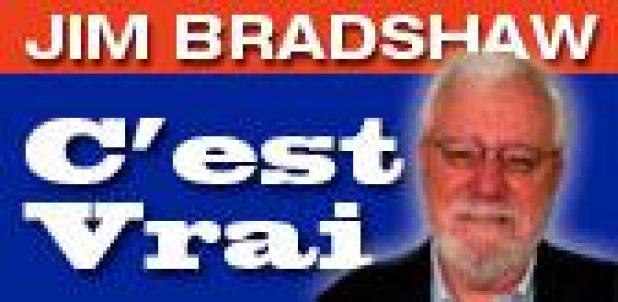
Jim Bradshaw: Many Acadians came to Louisiana from Maryland
It’s pretty widely known that a good number of the Acadians who settled in Louisiana came here from Maryland.
It’s not as widely known that after those Acadians were welcomed by Spanish authorities some of the English-speaking Catholics in Maryland thought they might want to come to Louisiana too
It was not an entirely new idea.
Charles Carroll, the wealthy Maryland landowner who in later years became the only Catholic signer of the Declaration of Independence, went to France in 1752, when France still claimed the huge Louisiana territory, to ask for land on the Arkansas River, where, in the words of historian James Alexander Robertson. “the oppressed Catholics of Maryland might settle … and have freer scope for the practice of their religion.”
(You probably remember reading about this in: “A Projected Settlement of English-speaking Catholics from Maryland in Spanish Louisiana, 1767, 1768,” The American Historical Review, Vol. 16, No. 2, January 1911.)
France and England weren’t getting along particularly well at the time, and the French weren’t at all interested in letting English colonists move into their territory.
Had they done so, Robertson says, “doubtless many of the Catholics in Maryland would have sought asylum under a Catholic government.”
He notes, “Double taxes, and the various other oppressions, both economic and religious, and the intolerant spirit of the Protestant government, might easily have driven off some of the best families of [Maryland], and much wealth.”
But by 1767, when the Acadians began to flock to Louisiana, life was much better for Maryland Catholics.
“There was a more tolerant spirit,” Robertson writes. “Catholic worship was more freely permitted. There was less talk of persecution. . . . There was not the same reason for migration as before.”
There was still some interest, but, under the changed circumstances, the Marylanders wanted to come to Louisiana strictly on their own terms.
One of them was Dr. Henry Jerningham, about whom we know very little except that he was from a well-to-do English family and had migrated to Maryland and apparently established a substantial practice.
He wrote to Antonio Ulloa, Louisiana’s first Spanish governor, in November 1767 that there were still in Maryland “hundreds of … Catholic families … to whom the advantages
granted to the Acadians who [went to Louisiana] would be a great blessing.”
“We have seen many letters from the Acadians to their countrymen, pressing them to speed themselves to partake of their good fortune in that fruitful region,” Jerningham wrote.
But, he said, the English-speaking Catholics. “men of property and fortunes,” needed some assurances “before disposing of their estates here.”
He wanted Ulloa to promise that they would be given land comparable to what they were giving up, and also that their religion would not be tainted by Spanish priests.
“Unless we have … royal assurance of Irish or English priests the migrants could not comply with the duties incumbent on a Roman Catholic, nor have any spiritual consolation at the hour of death,” the doctor wrote.
He wanted to send one of his neighbors to Louisiana “to get information … [about] the soil and civil government,” and to see “the produce of the soil at the different seasons, the manners and customs of the people, their way of living, and how the laws are executed.”
Ulloa sent a polite reply to Jerningham, thanking him for his interest but telling him “thanks, but no thanks.”
A collection of Jim Bradshaw’s columns, Cajuns and Other Characters, is now available from Pelican Publishing. You can contact him at jimbradshaw4321@gmail.com or P.O. Box 1121, Washington LA 70589.
